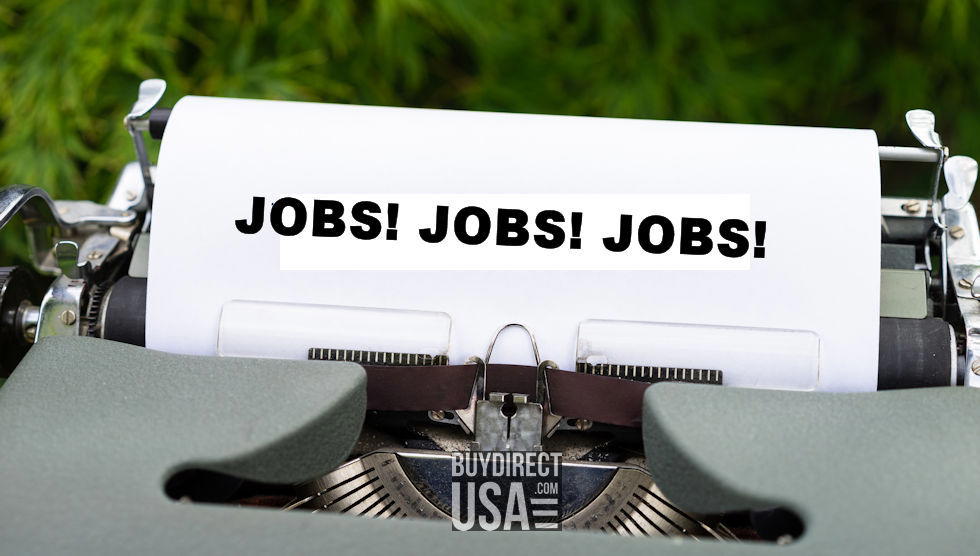In an era where global competition threatens American livelihoods, President Donald Trump’s recent trade deals and policies are charting a path toward renewed prosperity. By prioritizing fair and reciprocal trade, these initiatives aim to put American workers first, revitalize domestic manufacturing, fuel economic growth, and safeguard national security. Drawing from deals like the historic US-Indonesia agreement and the latest EU pact, along with broad tariff strategies, here’s how these efforts are poised to deliver tangible benefits—starting with the people who matter most: American workers and their families. As advocates for buying American-made products at BuyDirectUSA.com, we see these policies as a catalyst for supporting local producers and keeping dollars in our communities.
Putting People First: Creating High-Quality Jobs for Americans
At the heart of Trump’s trade agenda is a commitment to job creation, addressing decades of offshoring that have hollowed out communities. The US-Indonesia trade deal, announced in July 2025, exemplifies this by eliminating tariffs on over 99% of U.S. exports to Indonesia, opening vast market access in sectors like agriculture, automotive, and technology. This is expected to support thousands of high-quality American jobs by boosting exports and reducing the $17.9 billion U.S. trade deficit with Indonesia, where unfair barriers previously disadvantaged U.S. workers. Similarly, the national emergency declaration in April 2025 imposed a 10% baseline tariff on imports, with projections from a 2024 economic analysis indicating it could create up to 2.8 million jobs nationwide by encouraging reshoring and stimulating domestic production. Studies from Trump’s first term reinforce this: tariffs strengthened the economy and led to manufacturing reshoring, with minimal inflationary impact, directly benefiting working families through higher wages and stable employment. The 2025 USTR Trade Policy Agenda highlights how such robust policies have proven to create jobs, raise wages, and promote innovation, particularly in advanced sectors like pharmaceuticals and autos. For everyday Americans, this means more opportunities in factories, farms, and tech hubs—jobs that stay here, supporting families and local economies. [1] [2] [3]
Revitalizing US Manufacturing Through Fair Trade
Trump’s deals are designed to level the playing field for U.S. manufacturers, who have long faced unfair competition from subsidized foreign imports. The EU trade deal, part of Trump’s evolving strategy, imposes uniform tariffs that reduce imports more than exports, potentially increasing U.S. GDP by 2.2% through enhanced domestic production and supply-chain linkages. This builds on the Indonesia agreement, which removes non-tariff barriers like local content requirements and accepts U.S. safety standards for vehicles and medical devices, unlocking breakthroughs for American manufacturing in chemicals, remanufactured goods, and digital products. Tariffs from the April 2025 emergency order are already driving reshoring, with reports showing reduced imports from China and increased U.S. production in key industries. By addressing global excess capacity in sectors like steel, these policies protect and expand manufacturing capacity, ensuring American companies can compete globally. At BuyDirectUSA.com, we celebrate this shift—choosing USA-made products directly supports these revitalized factories and the innovation they foster. [4] [1] [2]
Improving the Overall Economy with Reciprocal Deals
Beyond jobs and manufacturing, Trump’s trade policies are engineered for broader economic gains, including deficit reduction and revenue generation. The Indonesia deal alone aims to shrink the bilateral trade gap by enforcing reciprocity—Indonesia’s 8% average tariff drops dramatically for U.S. goods, while a 19% reciprocal tariff on Indonesian imports funds American priorities. The EU pact similarly targets a reduction in the total U.S. trade deficit, with tariff revenues potentially offsetting tax cuts and stimulating growth through income tax reductions. Economic models project that a 10% global tariff could boost real household incomes, with first-term tariffs demonstrating strengthened growth and low inflation. These deals also promote digital trade moratoriums and data flow protections, enhancing economic resilience in emerging sectors. Overall, by extracting welfare gains from strategic tariffs, Trump’s approach fosters a more balanced, self-reliant economy that benefits consumers and businesses alike. [1] [4] [5]
Enhancing National Security Through Economic Strength
Finally, these trade deals bolster national security by reducing dependencies on foreign adversaries and strengthening alliances on American terms. The Indonesia agreement includes cooperation on supply chain resilience, export controls, and critical minerals access, directly addressing vulnerabilities in defense-related manufacturing. Tariffs under the emergency declaration protect sovereignty by curbing persistent trade deficits that undermine economic security, while rules-of-origin enhancements ensure benefits don’t leak to third countries like China. The USTR agenda underscores how these policies strengthen national defense by supporting domestic innovation and the industrial base. Even the EU deal, while straining some alliances, maintains U.S. escalation dominance, ensuring secure global value chains. In a world of geopolitical tensions, Trump’s trade reset prioritizes America’s security, making our nation safer and more prosperous. [1] [2] [3] [4]
Trump’s trade deals represent a bold vision for an America that produces, innovates, and leads. By buying American-made products through platforms like BuyDirectUSA.com, you can play a direct role in this resurgence—supporting jobs, factories, and security right here at home. For more on verified USA-made goods, explore our site today.
While these policies show promise based on official projections and historical precedents, ongoing developments may influence outcomes. For balanced perspectives, note that some analyses suggest potential costs like higher household expenses or retaliatory risks, though proponents argue the long-term gains outweigh them. [6]





